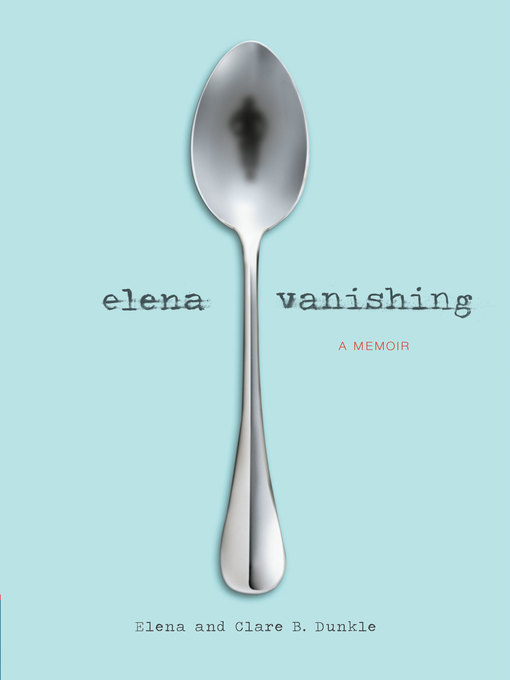
Elena Vanishing
A Memoir
فرمت کتاب
ebook
تاریخ انتشار
2015
Lexile Score
640
Reading Level
2-3
ATOS
4.6
Interest Level
9-12(UG)
نویسنده
Clare B. Dunkleناشر
Chronicle Books LLCشابک
9781452130682
کتاب های مرتبط
- اطلاعات
- نقد و بررسی
- دیدگاه کاربران
نقد و بررسی

April 6, 2015
In a raw memoir, Elena Dunkle, writing with her mother, documents her long struggle with anorexia nervosa, beginning when she was an overachieving teen; Clare Dunkle’s parallel account, Hope and Other Luxuries, is being published for adults simultaneously. (The publishing setup recalls that of David and Nic Sheff’s father-son memoirs of drug abuse.) By the time Elena starts on the real road to recovery, she has been through numerous hospitalizations, treatments centers, and therapy sessions, and she has “purged so much” that she can no longer tolerate a feeding tube. In an afterword, Elena writes that “nothing about eating disorders is simple,” something she makes painfully clear as she reveals the often terrifying inner workings of her mind and self-destructive behavior. She goes to great lengths to pretend to eat, all while a harsh internal voice constantly criticizes and humiliates her. It’s only after years of work that she is able to start getting to the root causes of what brought on her dangerous behavior. This authentic, painful story adds a valuable firsthand perspective on eating disorders. Ages 14–up. Agent: Erin Murphy, Erin Murphy Literary Agency. (May)■

March 1, 2015
This co-authored, mother-daughter memoir recounts daughter Elena's five-year struggle to overcome anorexia nervosa after her diagnosis at 17. Elena's memories often highlight the interwoven nature of her relationship with food to traumatic events in her life, from childhood feelings of maternal abandonment to a rape at age 13. The memoir's most emotionally resonant moments involve Elena's recognition of the connections between her emotional landscape and her anorexia. However, the narrative follows a distinct pattern: Elena experiences a health crisis that leads to professional intervention, she leaves treatment, the timeline skips ahead. At this point readers are essentially told that during the intervening time Elena was academically successful in such varied accomplishments as completing advanced placement exams and securing a job as a college dormitory residential assistant. It's difficult to imagine how she masked her heart condition, fainting, and other indicators of serious health problems. With each health crisis, the cycle begins anew, and readers learn that her anorexia has been growing increasingly severe. Elena does bravely expose her emotional struggles, and readers will welcome her eventual recovery. Unfortunately the book again skips the two years between her decision to accept help and the final reveal. This memoir contains moving snapshots of a young woman's struggles with anorexia nervosa, but readers may be frustrated by omissions of key moments in the recovery process. (Memoir. 14 & up)

April 1, 2015
Gr 9 Up-This poignant memoir, cowritten by Elena Dunkle and her mother, Clare, describes the young woman's battle with anorexia, which spanned several years. Opening just before her senior year of high school, Elena relates her experiences in and out of treatment facilities in often stark detail. A rigidly self-disciplined overachiever, the author is critical, both of herself and those around her, and some readers may find her overly judgmental. Because the book only focuses on several periods when she relapsed, it often leaps forward several years, giving it a disjointed feel, and many figures in Elena's life are underdeveloped. However, this young author displays promise. Written in the present tense, her narrative presents an almost frantic sense of immediacy that is well suited to the subject matter, as Elena describes difficult therapy sessions, her sometimes strained but always loving relationship with her mother, friendships with other patients, and events in her life that contributed to her disorder. Her angry, self-critical inner monologue ("The feeding pump is swelling you up. You're not anorexic! Who do you think you're fooling?") effectively conveys her skewed perspective in a manner similar to Laurie Halse Anderson's Wintergirls (Viking, 2009). Fans of that title and Alyssa B. Sheinmel's Stone Girl (Knopf, 2012) will appreciate this painfully honest look at a young woman's struggle. VERDICT A solid addition to memoir collections.-Mahnaz Dar, School Library Journal
Copyright 2015 School Library Journal, LLC Used with permission.

























دیدگاه کاربران